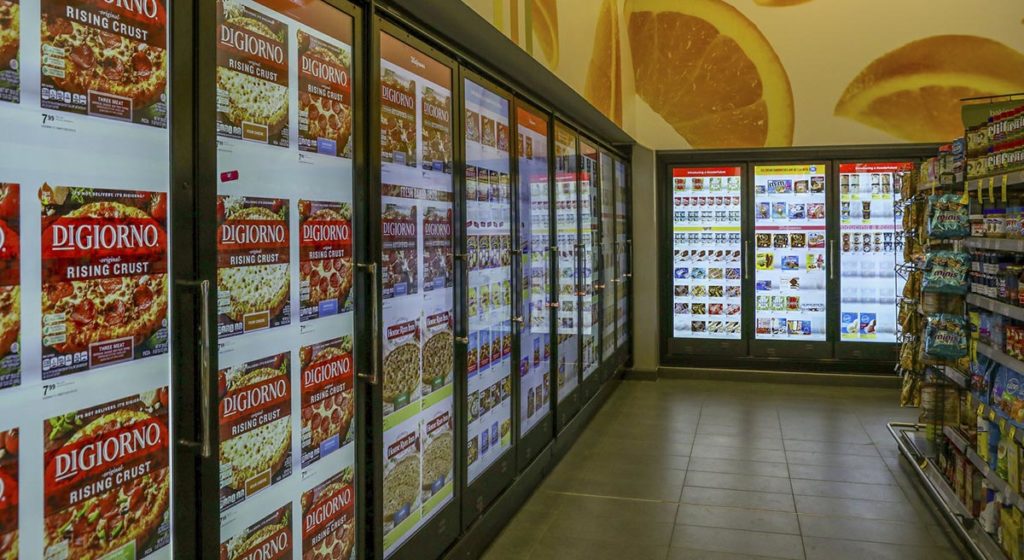Grocery Smart Shelves Deliver Ads Based on Age and Sex
image credit: Courier/Corrie Schaffeld
You may have started to notice video screens attached to shelves at your local supermarket. They show ads and promotions the store has going on. Maybe you’ll see a new flavor of ice cream or a discount on your favorite soft drink. At some stores, these ads might not be completely random.
Kroger Testing Real-Time Targeted Ads
Kroger is testing targeted ads in two stores, one near Cincinnati and the other just outside of Seattle. The ads run are based on a customer’s perceived age and sex. The smart shelves include tiny hidden cameras and sensors that are watching a customer’s every move.
When a customer gets in view of the camera, artificial intelligence will make a guess at age and sex. The screen will then show real-time targeted ads and discounts that pertain to the shopper’s demographic. For instance, a young man may see ads for energy drinks while an older woman could see a discount for organic milk. Kroger says the information is anonymous and the data is not being stored.

Walgreens Testing AI Tech In Coolers To Track Customers
Walgreens has also been testing similar technology. At six locations in Chicago, San Francisco, New York, and Washington state, they’ve installed screens and cameras on coolers. The cameras, which are located right above the door handle, can guess shoppers age and track their eye movements to see where they are looking.
Walgreens says the camera feature is currently disabled. For now, the cameras are just being used to sense when someone is in front of the cooler and keeping a count of shoppers passing by.
Could Targeted Ads Be Predatory?
While things like smart shelves seem to be an attempt to compete with online retailers such as Amazon who have a decent amount of customer data to leverage, it does raise privacy concerns. Having ad or deals tailored to you can improve the shopping experience, but it also can be predatory in a sense.
Perhaps a heavier person could be bombarded with ads for unhealthy snacks. Or a child tempted by sugary cereals. It could also lead to discriminatory practices like altering prices or pushing specific products based on a persons age, sex or perceived mood.
credit: AP
Check out our articles on Walmart’s Lab on Long Island and Autonomous Parking at Maryland’s Airport.

